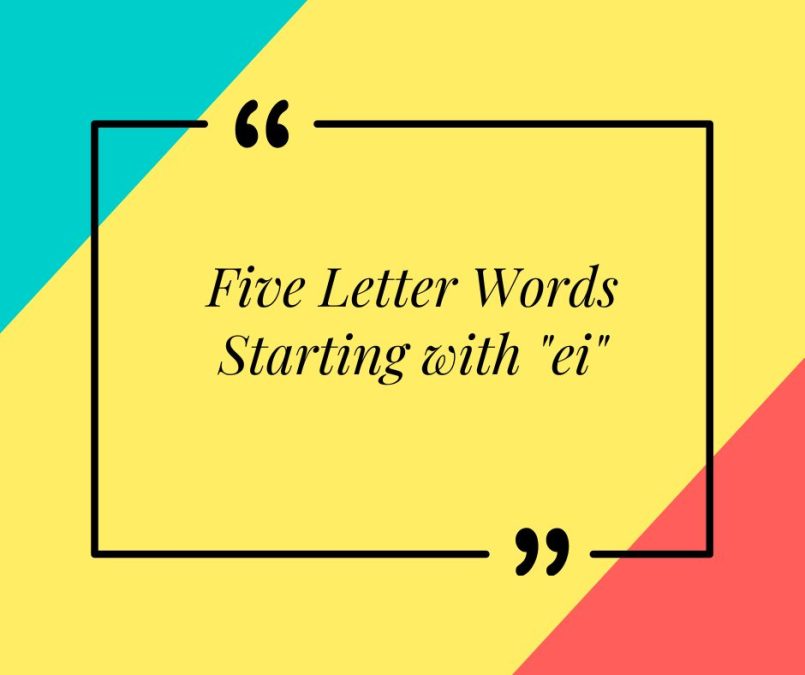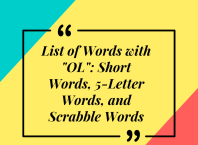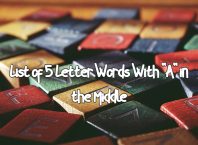Table of Contents
Words have always been a fundamental aspect of human communication. They help us convey our thoughts, feelings, and ideas to others, and they allow us to understand the world around us. In this article, we will be exploring a specific set of words: five-letter words that start with “ei”. We will examine words that end with “d” and “t”, words that have “ei” in the middle, and words that contain “ei” in different positions. By the end of this article, you will have a better understanding of these words and their significance in the English language.

TOP 5 Words Starting with “ei”
The first set of words we will examine are those that start with “ei”. Here are some examples:
- Eight – a number
- Eider – a type of duck
- Eigen – a German word meaning “own”
- Eikon – an image or representation
- Eider – a type of duck
Each of these words has its own unique meaning and usage. For example, “eider” is a type of duck that is found in the northern hemisphere, while “eikon” is a representation or image. “Eigen” is a German word that means “own”, and it is often used in mathematical contexts. “Eight”, of course, is a number.
Words Ending with “d” and “t”
Now let’s look at words that start with “ei” and end with “d” and “t”:
- Elide – to omit or suppress
- Equid – an animal with an even number of toes
- Eight – a number
- Eject – to force out
- Elite – a group of people considered to be the best in a particular society or category
“Elide” means to omit or suppress, while “eject” means to force out. “Equid” is an animal with an even number of toes, while “elite” refers to a group of people considered to be the best in a particular society or category. Finally, “eight” is a number that needs no explanation.
Words with “ei” in the Middle
Moving on, let’s explore some words that have “ei” in the middle:
- Seize – to take hold of forcibly
- Either – used to refer to one of two things
- Neither – used to refer to not one or the other of two things
“Seize” means to take hold of forcibly, while “either” and “neither” are used to refer to one of two things or not one or the other of two things, respectively.
Words Starting with “ei” and Ending with “t”
Let’s now take a look at words that start with “ei” and end with “t”:
- Eight – a number
- Eject – to force out
- Elite – a group of people considered to be the best in a particular society or category
As we’ve already seen, “eight”, “eject”, and “elite” all start with “ei” and end with “t”.
Words Starting with “s” and “ei” in the Middle
Next, let’s examine words that start with “s” and have “ei” in the middle:
- Seize – to take hold of forcibly
- Seine – a type of fishing net
“Seine” is a type of fishing net, while “seize” means to take hold of forcibly.
Other Five-Letter Words with “ei”
Finally, let’s take a look at some other five-letter words with “ei”:
- Feint – a deceptive or pretended blow
- Reive – to rob or plunder
- Neist – nearest
- Deice – to remove ice from something
- Keirn – to churn
- Reive – to rob or plunder
- Speir – to ask or inquire
- Seize – to take hold of forcibly
- Veils – a piece of cloth worn as a head covering
- Deign – to do something considered to be beneath one’s dignity
These words all have their own unique meanings and usages. For example, “deign” means to do something considered to be beneath one’s dignity, while “feint” refers to a deceptive or pretended blow. “Reive” means to rob or plunder, while “neist” means nearest. “Deice” means to remove ice from something, and “keirn” means to churn. “Speir” means to ask or inquire, while “seize” means to take hold of forcibly. Finally, “veils” are pieces of cloth worn as head coverings.
Top 20 Words Starting with “eid”, “ein”, “eil”, “eir”, “eig”, and “eia”
In addition to the categories we’ve already explored, there are also words that start with “eid”, “ein”, “eil”, “eir”, “eig”, and “eia”. Here are a few examples of each:
- Eidly – relating to Eid, a Muslim festival
- Eider – a type of duck
- Eilat – a city in Israel
- Eiree – an Irish word for “Ireland”
- Eight – a number
- Einka – a type of Icelandic fish
- Ender – one who ends or terminates something
- Einge – a type of vegetable
- Eilds – barren or uncultivated land
- Eilen – to trouble or afflict
- Eilers – someone who is from Eil or Ayle, a place in Germany
- Eiric – a form of compensation in ancient Irish law
- Eirie – an Irish word for “Ireland”
- Eiros – a unit of currency in Greece
- Eiger – a mountain in Switzerland
- Eighs – the plural form of “eigh”, a Scottish word meaning “each”
- Eight – a number
- Eikon – an image or representation
- Eider – a type of duck
- Eidel – an Old English word meaning “noble”
As you can see, there are many different five-letter words that start with “ei”. Each of these words has its own unique meaning and usage, and they are all important parts of the English language. By exploring these words, we can gain a better understanding of the complexities and nuances of our language.
In addition to the categories we’ve already explored, there are also words that start with “eo” and “ie”, as well as words with “ei” and certain other letters. Let’s take a look at a few examples of each:
Words Starting with “eo”
- Eocene – a geological epoch
- Eolian – relating to wind
- Eosin – a red or pink dye used in histology
Words Starting with “ie”
- Icier – more icy
- Ileal – relating to the ileum, a part of the small intestine
- Ileus – a blockage of the intestine
Top 15 Words with “ei” and Other Letters
- Deigns – third person present tense of “deign”
- Felsite – a type of volcanic rock
- Seismic – relating to earthquakes or vibrations
- Albeit – although
- Ceilidh – a Scottish or Irish social gathering
- Heifer – a young female cow
- Debits – the left-hand side of an account
- Jeeing – a Scottish term meaning “cheering” or “encouraging”
- Reived – past tense of “reive”
- Eidetic – relating to or marked by vividly detailed recall of something previously perceived
- Teiids – a type of lizard found in the Americas
- Tereira – a type of knife used in the sport of bullfighting
- Felder – someone who works with or deals in feldspar
- Heeded – paid attention to
- Veiled – covered with or concealed by a veil
As you can see, there are many different words that contain the letters “ei” in various positions. By exploring these words, we can expand our vocabulary and gain a deeper understanding of the English language.
Conclusion
The English language is full of fascinating and complex words, and those that start with “ei” are no exception. Whether we are using words like “eider” to talk about a type of duck, “deign” to talk about someone who considers themselves too important to do something, or “eikon” to describe an image or representation, each of these words has its own unique meaning and usage. By exploring these words and their meanings, we can gain a deeper appreciation for the richness and complexity of the English language.



